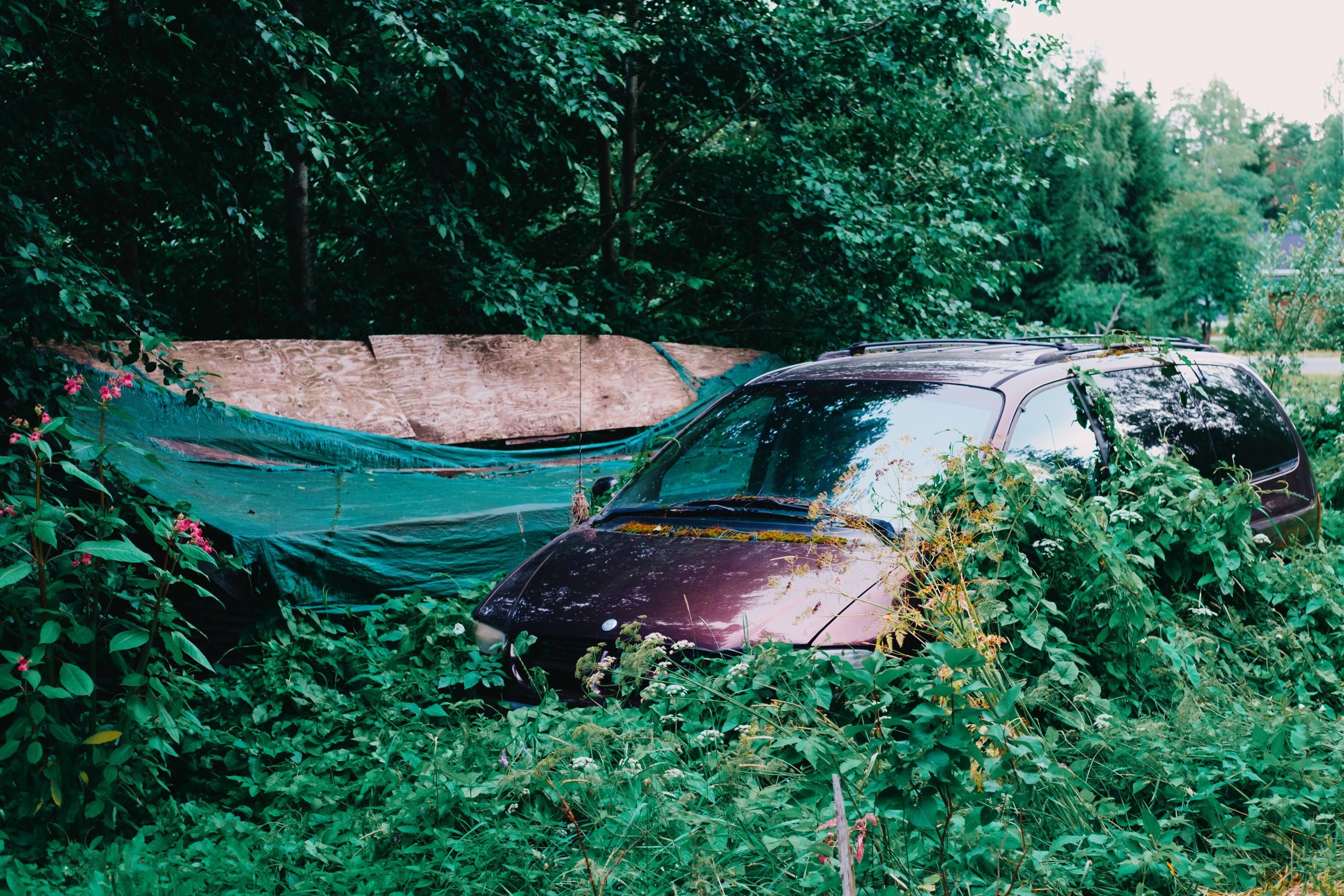When a resident of your community association dies intestate (without a will), it can create a host of problems for you as the manager. Not only do you have to deal with the emotional fallout of the situation, but you also have to contend with financial and legal challenges.
April 19, 2022
~7 min read
Risks & challenges
We’ve prepared some key information about community associations and decedent intestate residents to help you navigate this complex situation. Continue reading to discover more about your options and what to expect.
Vacancy risks
One of the biggest and most immediate risks after a resident dies intestate is the potential for vacancy. If the deceased owner was the only resident in the unit, then the unit will be left vacant. If there is no one to take over the property, the unit could sit vacant for months or even years. This can be a problem for several reasons:
- It puts additional strain on the community association if they are tasked with the costs of actively maintaining and repairing the unit.
- It can lower property values in the community as a whole, as vacant properties have a tendency to look uninviting to potential buyers.
- It increases the risk of vandalism and crime in the area and can negatively impact the community’s crime rate, as vacant properties are often targeted by criminals.
If you find yourself in this situation, it’s important to act quickly. You’ll likely need to reach out to any known family members or close friends of the deceased owner before you can make important decisions about how you will move forward.
Homestead exemption
Another complication can arise if the deceased owner was receiving a homestead exemption, as the unit may not be able to be sold or transferred until the exemption is removed.
In some states, the homestead exemption protects a homeowner’s primary residence, or a certain amount of the home’s equity, from creditors. In essence, this means it can’t be seized to cover debts, and if the property is sold, the proceeds would go to the beneficiaries of the estate rather than the association. This could leave the association in a difficult financial position.
However, if the deceased owner was not married and had no children, then the death may trigger a reassessment of the property and the removal of the homestead exemption, leading to a higher tax bill for the community association.
Property title
Another challenge associations may face after the death of an intestate resident is dealing with the property title. If the deceased owner was the sole owner of the property (and in some other cases), the property may need to be transferred to the deceased person’s next of kin or designated representative.
However, this can be a complicated process, especially if there’s no will in place and no clear heir. Determining who should inherit the property can be difficult and may have to go through probate court, creating uncertainty and delays in the process of selling or transferring the property to another owner.
If the community association needs to take legal action against the unit, such as for non-payment of assessments or violations of the governing documents, these actions may have to wait until it is clear who owns the unit, and if multiple parties are entitled to claim the unit, it could add even more complexities and an even longer timeline.
Unpaid dues, fees, and assessments
Although we’ll discuss many risks and challenges associated with dealing with the death of a resident, one of the biggest concerns is likely to be unpaid assessments.
If the deceased resident owes money to the association (such as unpaid association dues or maintenance fees, for example), their estate is responsible for paying off that debt. However, if there’s no will in place, it can be difficult to track down the appropriate next of kin who should be responsible for paying off the debt, and the community association could be left footing the bill. This could lead to financial hardships for the association and put them at risk for foreclosure.
Easing the strain on the association’s finances may require legal action against the estate of the deceased, which is costly and time-consuming, or alternatively raising assessments for all members to make up for the unpaid shortfall.
If you find yourself in this situation, it’s important to assess all options before taking any action. Reaching out to the deceased owner’s family or friends to assess the situation is highly recommended.
Foreclosure
Another risk associated with an intestate death of a resident is foreclosure, especially if the deceased owner has not kept up with their mortgage payments.
If the property goes into foreclosure, the association may then be responsible for maintaining and repairing the property until it is sold – which could become a costly endeavor. In addition, foreclosures can lower property values in the community as a whole and increase the risk of crime.
To avoid foreclosure, it’s important to work with the deceased person’s next of kin or designated representative to try and arrange for payment of the outstanding debt.
Personal belongings
In addition to financial considerations, there are also logistical challenges that come with dealing with a deceased resident’s property, in the form of dealing with their personal belongings in a careful and respectful manner. You may be able to work with the deceased person’s next of kin or designated representative to have them remove the belongings from the property.
If there is no family member or other person to take over the unit or claim the deceased’s personal belongings, you may need to obtain a court order authorizing you to access the home and remove any personal belongings. In this case, the association may be responsible for figuring out how to dispose of the personal belongings, such as hiring a storage company, holding a garage sale, or just paying a property clean-out company to handle it.
When falling on the shoulders of the community association, all these tasks can be a drain on resources.
Your first priority?
As you can see, there are many things that a condo association or homeowner’s association may need to address after the death of a resident:
- Vacancy risks
- Homestead exemption
- Property title
- Unpaid dues, fees, and/or assessments
- Foreclosure
- Personal belongings
While it is not always possible to avoid these challenges entirely, it is important to be mindfully aware of them. Once you’re prepared, you’ll be better able to handle these things effectively when they arise.
You may notice that many of these risks and challenges are greatly reduced if you are able to communicate with the deceased homeowner’s family, friends, and/or the estate’s executor, as they can almost certainly help you with some of the logistics and unanswered questions surrounding the situation.
Working closely with those who are involved in the affairs of the deceased association resident can help you minimize the disruption, stress, and risk associated with a death in your community, and helps ensure that the interests of the condo association or homeowner’s association are protected.
For this reason, when a community association homeowner dies intestate and there is no known family members or next-of-kin, you may want to make it your FIRST priority to turn to professional heir locator services.
In most cases, an heir search is performed at the request of an estate administrator or representative, and it’s used to “fill in the gaps” on the family tree of a person who has died intestate (without a will). It’s an important part of the probate process, as it ensures that any heirs who should be included in the probate process are named, located, and contacted.
However, if there are no known family members or living relatives, a professional heir search company can uncover ALL of the individual’s known heirs, as well as their location and contact information. Most heir finding services are typically performed by a genealogist and/or a private investigator.
EstateCo heir search services
At EstateCo, we pride ourselves on providing the best heir search and location services in the business.
Our unrivaled data acquisition process results in the most comprehensive and accurate database available, incorporating leading-edge technologies like deep web crawlers, machine learning, and artificial intelligence.
No detail is overlooked or underestimated – skilled research teams of genealogy experts and private investigators apply advanced techniques to manually confirm findings and develop the documentation necessary to prove heirship and legal entitlement.
EstateCo real estate services
In addition to providing the identity, location, contact information, and proof of heirship for the heirs of any deceased person, we’re proud to offer award-winning real estate services, too!
Our licensed real estate brokers have a wealth of experience in dealing with financial institutions, local governments, and third-party contractors, and are able to help with things such as:
- Unique foreclosure situations
- Tax deed sales
- Mortgage payoff negotiations
- Lien release negotiations
- Renovations of any scale
- Traditional real estate sales
- Investor wholesale
- Property clean-out and disposal
- Community association financials
- Property title issues
- Homestead tax exemptions
…and more!
Why EstateCo?
If you find yourself in the situation of having to deal with the vacant home of a deceased association resident with no known family members, you are not alone – we can help!
We’re proud to assist community association boards and management companies with our wide range of services that can be customized to fit your needs. We have the experience and expertise to provide practical solutions that will give you the best possible outcome.
Contact us today to learn more about how we can help.




